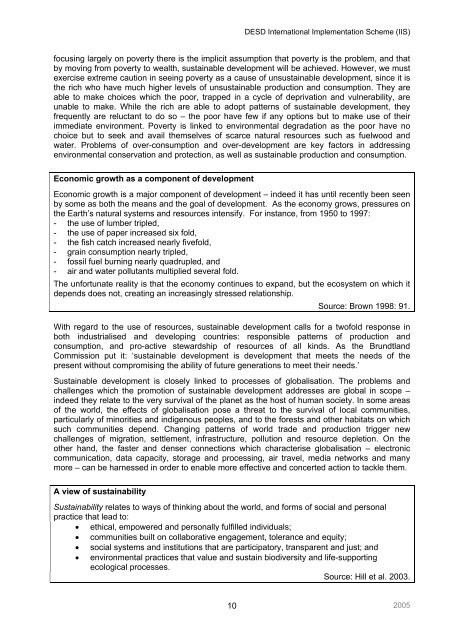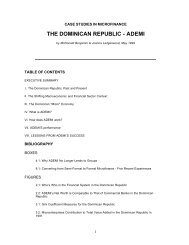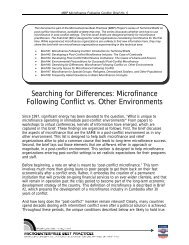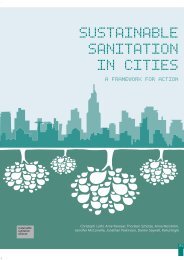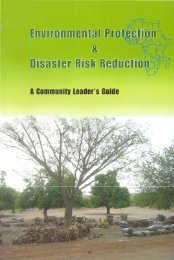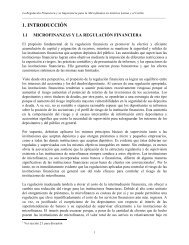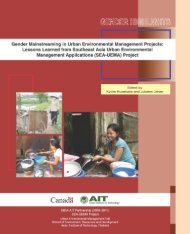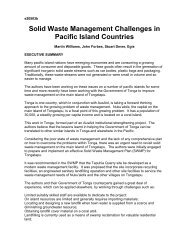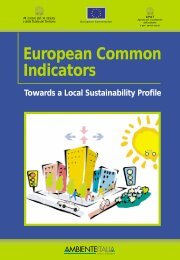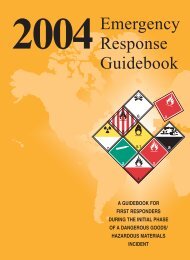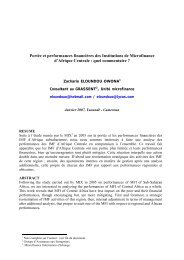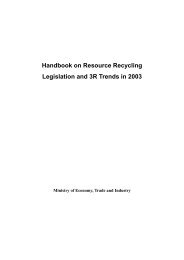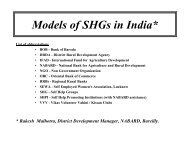The International Implementation Scheme (IIS) - Unesco
The International Implementation Scheme (IIS) - Unesco
The International Implementation Scheme (IIS) - Unesco
You also want an ePaper? Increase the reach of your titles
YUMPU automatically turns print PDFs into web optimized ePapers that Google loves.
DESD <strong>International</strong> <strong>Implementation</strong> <strong>Scheme</strong> (<strong>IIS</strong>)<br />
focusing largely on poverty there is the implicit assumption that poverty is the problem, and that<br />
by moving from poverty to wealth, sustainable development will be achieved. However, we must<br />
exercise extreme caution in seeing poverty as a cause of unsustainable development, since it is<br />
the rich who have much higher levels of unsustainable production and consumption. <strong>The</strong>y are<br />
able to make choices which the poor, trapped in a cycle of deprivation and vulnerability, are<br />
unable to make. While the rich are able to adopt patterns of sustainable development, they<br />
frequently are reluctant to do so – the poor have few if any options but to make use of their<br />
immediate environment. Poverty is linked to environmental degradation as the poor have no<br />
choice but to seek and avail themselves of scarce natural resources such as fuelwood and<br />
water. Problems of over-consumption and over-development are key factors in addressing<br />
environmental conservation and protection, as well as sustainable production and consumption.<br />
Economic growth as a component of development<br />
Economic growth is a major component of development – indeed it has until recently been seen<br />
by some as both the means and the goal of development. As the economy grows, pressures on<br />
the Earth’s natural systems and resources intensify. For instance, from 1950 to 1997:<br />
- the use of lumber tripled,<br />
- the use of paper increased six fold,<br />
- the fish catch increased nearly fivefold,<br />
- grain consumption nearly tripled,<br />
- fossil fuel burning nearly quadrupled, and<br />
- air and water pollutants multiplied several fold.<br />
<strong>The</strong> unfortunate reality is that the economy continues to expand, but the ecosystem on which it<br />
depends does not, creating an increasingly stressed relationship.<br />
Source: Brown 1998: 91.<br />
With regard to the use of resources, sustainable development calls for a twofold response in<br />
both industrialised and developing countries: responsible patterns of production and<br />
consumption, and pro-active stewardship of resources of all kinds. As the Brundtland<br />
Commission put it: ‘sustainable development is development that meets the needs of the<br />
present without compromising the ability of future generations to meet their needs.’<br />
Sustainable development is closely linked to processes of globalisation. <strong>The</strong> problems and<br />
challenges which the promotion of sustainable development addresses are global in scope –<br />
indeed they relate to the very survival of the planet as the host of human society. In some areas<br />
of the world, the effects of globalisation pose a threat to the survival of local communities,<br />
particularly of minorities and indigenous peoples, and to the forests and other habitats on which<br />
such communities depend. Changing patterns of world trade and production trigger new<br />
challenges of migration, settlement, infrastructure, pollution and resource depletion. On the<br />
other hand, the faster and denser connections which characterise globalisation – electronic<br />
communication, data capacity, storage and processing, air travel, media networks and many<br />
more – can be harnessed in order to enable more effective and concerted action to tackle them.<br />
A view of sustainability<br />
Sustainability relates to ways of thinking about the world, and forms of social and personal<br />
practice that lead to:<br />
• ethical, empowered and personally fulfilled individuals;<br />
• communities built on collaborative engagement, tolerance and equity;<br />
• social systems and institutions that are participatory, transparent and just; and<br />
• environmental practices that value and sustain biodiversity and life-supporting<br />
ecological processes.<br />
Source: Hill et al. 2003.<br />
10<br />
2005


